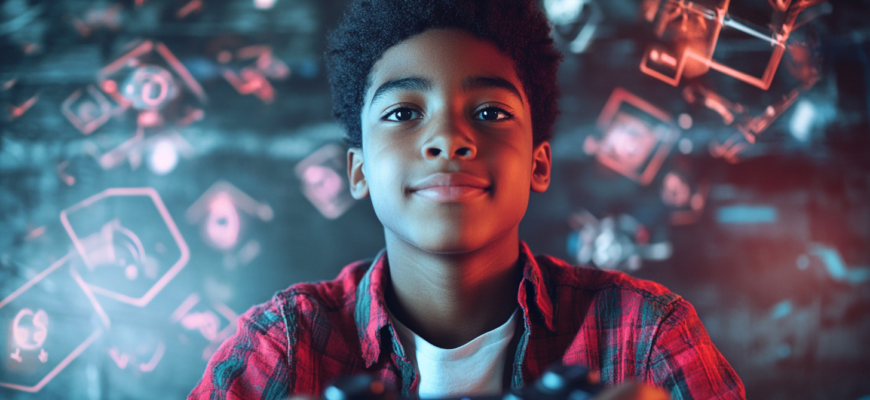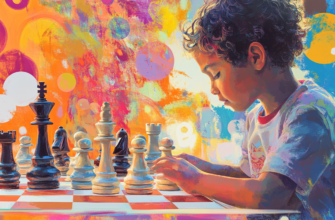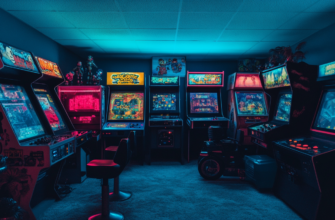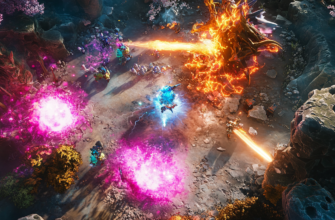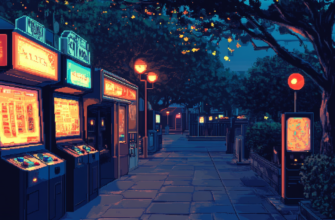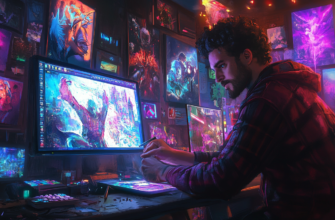- How video games enhance problem-solving skills in teens
- What makes video games a problem-solving powerhouse?
- 1. Complex systems and decision making
- 2. Learning to fail is learning to solve
- 3. Multi-tasking and quick-thinking: The gamer’s edge
- How gaming strengthens a teen’s mental resilience and adaptability
- The psychology behind gaming and problem-solving
- What parents should understand about teen gamers
- How gaming improves social problem-solving
- Tips on how to enhance problem-solving through gaming
- Conclusion: Gaming is a tool, not a distraction
How video games enhance problem-solving skills in teens
Let’s be real – playing video games has often been labeled as a waste of time. But here’s a different perspective: teens who game are actually developing some serious problem-solving skills. Whether it’s navigating complex levels, figuring out puzzles, or working in teams, gaming can contribute to better mental flexibility and adaptability. And get this – science is backing it up. If you’re a teen (or a teen at heart) who loves gaming, you might be gaining some incredible psychological benefits. Here’s how gaming helps teens deal with real-life challenges and become expert problem-solvers.
What makes video games a problem-solving powerhouse?
First off, let’s break down what video games offer. Games are designed to be challenging. Whether it’s dealing with hard-to-beat bosses, managing resources, or coordinating strategies, all of these deliver something special: practice in decision-making and problem-solving. These aren’t just random experiences. In fact, they often replicate real-life dilemmas and push players into thinking critically under pressure. But what exactly is it in video games that makes teens excel at solving problems in real life?
1. Complex systems and decision making
Many games simulate complicated scenarios. Think of popular open-world games like The Legend of Zelda: Breath of the Wild or Minecraft. They present huge worlds filled with challenges, puzzles, and areas that require you to explore, craft, or calculate the best course of action. Games like this fine-tune your ability to juggle different strategies – from prioritizing which resources to manage, how to spend time, or which part of your virtual world needs attention first. This kind of thinking becomes second nature with gaming experience, and guess what? It overlaps a lot with skills necessary for real-world problem-solving.
2. Learning to fail is learning to solve
If you’ve ever played games like Dark Souls, you know just how many times you’ll die before getting through one single level. While this can feel frustrating, it’s teaching one super important lesson: persistence through failure. Each time you make a mistake and try again, your brain is analyzing what went wrong and adjusting. This is the very essence of problem-solving. Gamers who encounter tough situations or loss in real life are more likely to figure out where they went off track and keep at it until they succeed.
3. Multi-tasking and quick-thinking: The gamer’s edge
Some video games push you to make decisions in real-time. Titles like League of Legends or Fortnite are fast-paced and demand that players make split-second calls. In these multiplayer games, one wrong turn, a bad call, or a miscommunication can cost an entire match. As a teen gamer, you’re constantly adapting, strategizing, and making fast choices. This isn’t just about beating the game – these skills bleed into real life, helping teenagers face everyday challenges and adapt to new situations with more ease.
How gaming strengthens a teen’s mental resilience and adaptability
But it’s not just about solving digital problems. When teens spend time gaming, they’re also becoming more resilient and adaptable in ways they can use outside of their screens. Here’s where the magic happens:
- Stress Management. Games often present high-pressure situations. Surviving in survival games like Ark: Survival Evolved or maintaining focus in fast-paced shooters like Call of Duty helps teens deal with stress. Practicing calm under pressure transfers over, helping them better cope with stress, anxiety, or high-stakes scenarios in life such as exams or social conflicts.
- Failure Recovery. Just like I mentioned with Dark Souls, teens who are comfortable failing in games (and learning from those failures) can apply this thinking in their lives. These experiences teach kids to stand back up after setbacks, find new solutions, and tackle issues with fresh approaches.
- Focus and Concentration. Many games require keen awareness and sustained attention. Think of strategy games like Civilization or puzzle-based adventure games like Portal. Teens who rock at video games are often exercising extended periods of concentration – a necessary skill when tackling real-life problems like studying or goal-setting.
The psychology behind gaming and problem-solving
So, you’re probably wondering, is there any actual science behind this? Here’s the cool part: according to psychology, games are a major boost to cognitive abilities, especially for teens. Psychologists have found multiple reasons gaming is great for the brain:
- Cognitive flexibility. Research from the American Psychological Association indicates that action gamers, in particular, have sharper cognitive abilities than non-gamers. Games force players to make, break, and adapt strategies. That reshaping of the mind constantly improves brain flexibility over time.
- Problem-solving brain workouts. Studies in educational psychology note that games with puzzles, strategies, and challenges act like mini boot camps for the brain. By pushing their limits and encountering difficult in-game problems, players develop both analytical and creative thinking.
- Emotional regulation. Games can also teach teens to manage tough emotions. Imagine a high-stakes multiplayer match with heated moments. It’s a real psychological workout, and players learn emotional resilience over time. So next time you’re frustrated in the game, don’t give up – you’re actually training yourself to handle emotions like a champ!
What parents should understand about teen gamers
Here’s something that often gets missed: many parents are worried that their teens are “gaming too much” and it might be disruptive. But instead of focusing on the negatives, it’s worth noting the pros. Yes, moderation is vital, but video games – when balanced well – offer cognitive advantages. Teens who play games are engaging in ways that stretch their problem-solving ability. Of course, I’m not saying all teens should game endlessly, and some forms of gaming can be distracting, but strategic games actually help them learn to cope and adapt.
How gaming improves social problem-solving
The stereotype of the lone gamer is far from accurate these days. Many games rely on collaborative efforts through online multiplayer modes. Competitive games (think Overwatch or Apex Legends) don’t just throw teens into challenges – they force social problem-solving. In order to win in team-based games, you need to communicate effectively, work together, and come up with combined strategies. This healthy interaction encourages understanding different perspectives and handling group tasks like pros – skills that stick even outside the game room.
Tips on how to enhance problem-solving through gaming
If you’re looking to level up your real-life problem-solving skills through your favorite games, here’s how you do it:
- Play games that challenge you mentally. Expand your game library to include more mind-bending and strategy games. Titles like Portal 2 and Stardew Valley might look different from fast-paced shooters, but they’ll push your brain to think in more elaborate ways.
- Solve unfamiliar problems in-game. Don’t just stick to what you already know – tackle in-game puzzles you’re not good at. When you force yourself into uncomfortable situations, you’re improving your adaptability skills.
- Multiplayer games help with teamwork. Make use of online multiplayer functionality to work on not just gaming skills, but communication. Play support roles, strategize with friends, or lead the team. Navigating social challenges in gaming makes teamwork in real life smoother.
- Time yourself and increase mental pressure. Want to boost your ability to handle pressure? Time yourself while solving in-game problems or challenges. This mirrors the stressful situations gamers often face in life, like exams or important deadlines.
Conclusion: Gaming is a tool, not a distraction
To wrap things up, let’s revisit the idea that video games aren’t all bad. In fact, for teens, they’re often a potent tool for self-development – especially in the realm of problem-solving. Between building resilience, improving teamwork abilities, learning to focus, and getting better at managing pressure, teens who game are setting themselves up to handle life’s challenges with creativity, smarts, and grit. So the next time someone tells you that you’ve been “wasting time” gaming, just hit them with the facts – it’s all about growing those problem-solving muscles!
If you enjoyed this take on gaming, go ahead and drop a comment with your gaming experience or any other life lessons you’ve picked up from your favorite games. Happy gaming – and keep solving problems like a pro!

